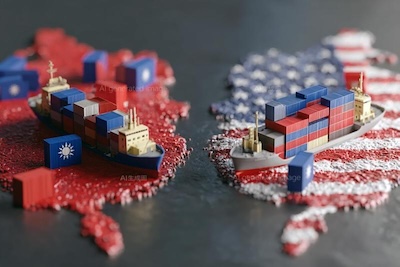The People’s Party’s very own leader–Ko, has finally been released, and with his return, the party now faces two major problems.
First off, let’s be honest: the Taiwan People’s Party (TPP) has always revolved around Ko Wen-je. No one dares speak or act without Ko’s signal. Everything they did while he was under investigation was basically just killing time until their spiritual leader could return. Now that Ko is back and free, it’s only natural that he resumes his place as the eternal leader. Anything less would feel… off-brand.
So here’s the question: should acting chairman Huang Kuo-chang immediately step down? Should the party go back to being a one-man theocracy, with Ko back in full control? After all, Huang has always deferred to Ko’s leadership, treating his words like gospel. Ko’s long-repeated demand that TPP legislators serve only two years? That rule will probably be enforced now. Does that mean it’s time to reshuffle the party’s “Eight Generals” — the top-ranked at-large legislators?
If Huang gracefully resigns and lets Ko take over again, that would be the cleanest outcome. Huang is politically savvy and has always tried to keep his image clean. If he’s not power-hungry, the grassroots “Little Grass Army” would remember his sacrifice fondly. Stepping back might even help him leap forward later. Why not take that deal?
The real challenge isn’t replacing Huang — it’s getting those Eight Generals to willingly give up their power. What kind of “cup of wine” can the TPP offer to convince them to step aside, like in ancient tales where warlords gave up command after a toast? There haven’t been any open rebellions yet, but vague comments, hidden resistance, and self-serving arguments are already surfacing. Don’t they say, “Where there’s smoke, there’s fire”? The storm is brewing, and we’ve already seen signs that at least two major players aren’t ready to give up their newfound power quietly. And honestly — can you blame them? They just got a taste of political influence, and now you want them to walk away like it’s no big deal?
This is the dilemma the TPP faces now — and in the long term. A party’s future depends on its ability to expand its influence and keep its followers satisfied. Just talking about a “Blue-White alliance” (uniting with the KMT) means nothing unless the real issue is addressed: power. Who gets to lead? Who gets sidelined? Who gets to pull the strings, and who just gets pulled along?
Ko and Huang may be able to swap roles and keep the party flexible, but let’s not kid ourselves — that won’t turn the TPP into a dominant force overnight. The KMT needs to think carefully before betting on the TPP as a junior partner. There’s no guarantee the “small Blue” will ever become a “big Blue.”
Let’s rewind to the 2024 election. Was Ko’s decision to run independently a huge mistake? Maybe — if you judge by the outcome. But if he hadn’t run, we wouldn’t be talking about these Eight Generals today. His mistake, if any, was probably relying too much on an overly optimistic polling team. And if the DPP hadn’t nominated a candidate with solid appeal — especially to young women — the votes might’ve swung to the TPP. In that case, who knows how the election would’ve turned out?
So, if the TPP wants to grow its “political pie,” where are the ingredients coming from — the DPP’s voter base or the KMT’s leftovers? Let’s face it: moderate voters are far more likely to leave the KMT and vote for the TPP than they are to abandon the DPP. That’s just cold political math — and the TPP knows it.
Right now, the TPP’s biggest issue isn’t whether they should team up with the KMT or not. The real problem is internal: the “two-headed carriage” of Ko and Huang, and the two-year term limit that could push out the party’s key figures. These structural issues need to be resolved first.
And there’s one more thing to think about — how long can Ko and Huang keep their hypnotic hold over young voters? Will the so-called “Little Grass” followers really stay loyal forever? Or will time eventually wear down their devotion? People grow up. The young won’t stay easily molded forever. Can the TPP adapt before the spell wears off?
Author: New Congress



